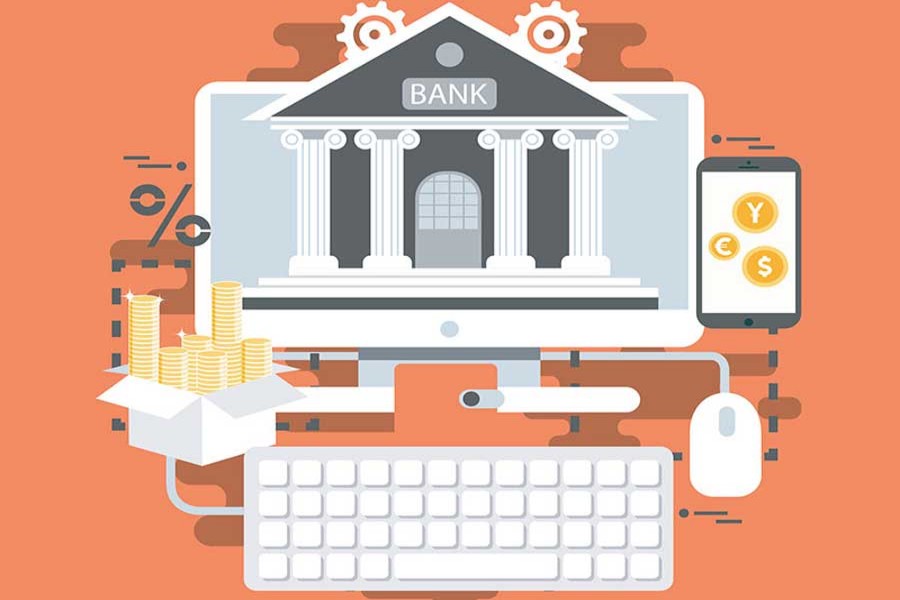The government is optimistic about expanding digital banking in the country to accelerate financial inclusion with an aim to create more jobs for young jobseekers.
According to an official document seen by UNB, the government has stepped in to examine the possibility of establishing digital banks.
It says if digital banking, which involves high levels of process automation and web-based services, could be expanded new jobs will be created for graduates in information technology. Digital banking provides services mostly through non-physical means such as app-based requesting systems and without printed paperwork, without filling out forms and making transactions through e-wallets.
The government is also considering if Bangladesh Bank can introduce digital currency. Introduction of Central Bank Digital Currency (CDBC) will facilitate currency in virtual transactions and encourage startups and e-commerce businesses, the document says.
It is to be noted that establishing digital banks is under either initial implementation or experimental stage in various developed countries and some developing countries in Asia including Singapore, Malaysia and India.
It also says that introduction of services like Mobile Financial Services (MFS) and Agent Banking in the country has facilitated financial inclusion.
But, it says, due to lack of interoperability of transactions between MFS service providers, the users of the service did not have the opportunity to perform direct inter-transactions.
“To make financial inclusion more dynamic, the government has introduced financial interoperability in the country and fixed nominal fee and charge for inter-transactions,” it says.
The government has also formulated the National Financial Inclusion Strategy-Bangladesh (NFIS-B) to establish social cohesion and economic stability by ensuring access to quality financial services for people from all walks of life.
Its main objective is to provide a comprehensive framework through which cooperation may be enhanced by coordinating and prioritising the work of all stakeholders involved in financial inclusion activities.
The NFIS National Council (NNC) has been formed to implement various programmes under the said strategy.
“All these steps will further strengthen the foundation of the financial inclusion process in Bangladesh,” it says.
As the risky use of virtual currencies such as Crypto Currencies continues to grow worldwide, many central banks around the world are working to launch digital versions of their currencies as an alternative to Crypto Currencies.
The main purpose of launching Central Bank Digital Currency (CDBC) is to facilitate currency in virtual transactions and to encourage startups and e-commerce businesses.
As a result of the time-befitting steps of the present government, the coverage of the internet and e-commerce in the country has increased tremendously.
In this context, Bangladesh Bank will conduct a feasibility study on the possibility of introducing digital currency in Bangladesh.
The Bangladesh Systemic Risk Dashboard is being made to identify the systemic risks and present the assessment of Bangladesh Bank to the stakeholders on a half-yearly basis.
The financial projection model is being implemented to identify potential risks and weaknesses in the financial system.
Moreover, an interbank transaction matrix is being implemented to determine the nature, risk, and contagion effect of interbank transactions.
Bangladesh Bank has formulated a recovery plan to prepare the banks to adapt automatically and efficiently to the situation of severe stress in advance.


